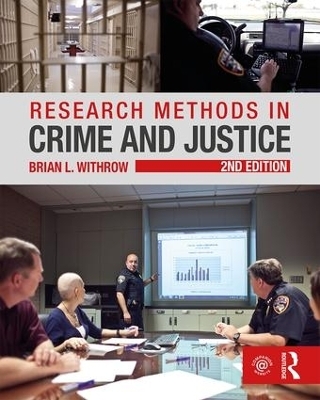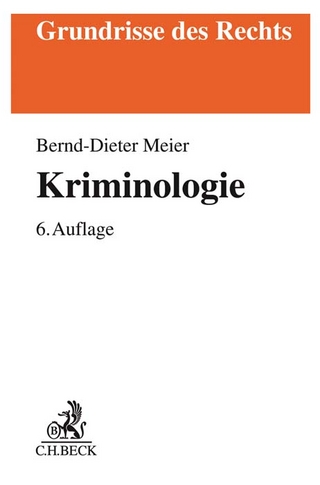
Research Methods in Crime and Justice
Routledge (Verlag)
978-1-138-12423-3 (ISBN)
Brian Withrow, a widely published academic researcher and former Texas State Trooper, developed this approach for his own undergraduate Research Methods class. He persuasively demonstrates that research skills aren’t just essential to university academic researchers but to successful criminal justice practitioners as well. More than 80 short, sharply focused examples throughout the text rely on research that is conducted by, on behalf of, or relevant to criminal justice practitioners to engage students’ interest like no other text of its kind. Extensive web materials all written by the author provide an array of instructor support material, including a Researcher’s Notebook that provides students (and their instructors) with a series of structured exercises leading to the development of a valid research project. Withrow systematically walks students through defining a question, conducting a literature review, and designing a research method that provides the data necessary to answer the research question—all online, with minimal instructor supervision.
The second edition features expanded coverage of measurement, qualitative research methods, and evaluation research methods, as well as additional downloadable journal articles to ensure students begin to think critically about research and can read scholarly literature.
Dr. Brian L. Withrow is Professor at Texas State University—San Marcos. Prior to joining the Texas State University faculty in 2009, Brian was an Associate Professor and Director of the Forensic Sciences Program at Wichita State University. While on the faculty at Wichita State University, Brian served one term as Mayor of Bel Aire, Kansas. From 1993 to 1999, Brian managed a police leadership development program at Sam Houston State University in Huntsville, Texas. Prior to his scholarly career, Brian worked for the Texas Department of Public Safety. He started this part of his career in 1981 as a State Trooper in a rural part of the Texas Panhandle. During the nearly 13 years Brian was at the Department of Public Safety, he promoted to the rank of Training Officer, Inspector, and Bureau Commander. Brian earned his Bachelor of Arts degree in Criminal Justice from Stephen F. Austin State University in 1981, his Master of Public Administration from Southwest Texas State University in 1993, and his Doctor of Philosophy in Criminal Justice from Sam Houston State University in 1999. Brian lives on a farm near Medicine Lodge, Kansas with his wife Lisa. They have four grown children and four grandchildren. He spends most of his "off" time managing his growing honey bee apiary.
Part One – Getting Started.
1 – The Research Practice.
2 – The Research Process.
3 – The Ethical Principles that Guide Researchers.
Part Two – Learning Research Design Basics.
4 – Classifying Research.
5 – Causality.
6 – Measurement.
7 – Variables and the Structure of Research.
8 – Sampling.
Part Three – Acquiring and Analyzing Data.
9 – Experimental Design Research Methods.
10 – Survey/Interview Research Methods.
11 – Non-Reactive Research Methods.
12 – Qualitative Research Methods.
13 – Evaluation Research Methods.
14 – Data and Information Analysis.
| Erscheinungsdatum | 25.05.2016 |
|---|---|
| Reihe/Serie | Criminology and Justice Studies |
| Zusatzinfo | 108 Tables, color; 18 Line drawings, color; 18 Illustrations, color |
| Verlagsort | London |
| Sprache | englisch |
| Maße | 187 x 235 mm |
| Gewicht | 1190 g |
| Themenwelt | Recht / Steuern ► EU / Internationales Recht |
| Recht / Steuern ► Strafrecht ► Kriminologie | |
| ISBN-10 | 1-138-12423-0 / 1138124230 |
| ISBN-13 | 978-1-138-12423-3 / 9781138124233 |
| Zustand | Neuware |
| Haben Sie eine Frage zum Produkt? |
aus dem Bereich


